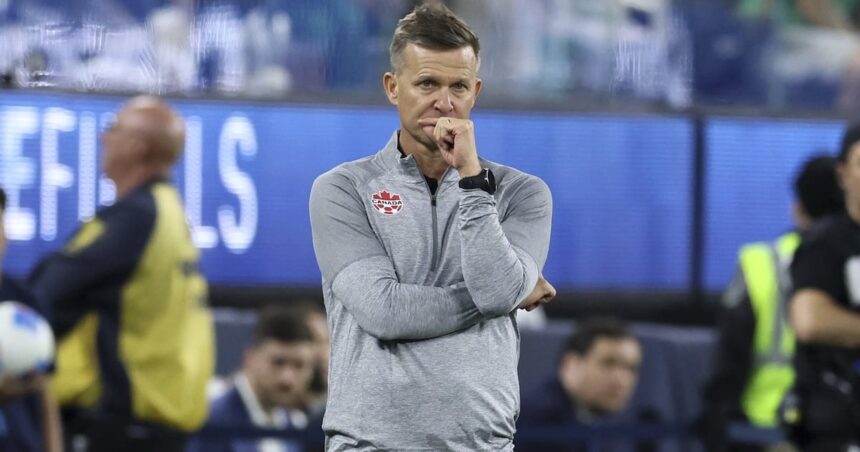The international soccer stage has never been a stranger to controversy, but recent developments surrounding Canada’s national team coach Jesse Marsch have added another chapter to the ongoing tensions between teams and governing bodies in North American soccer.
In what can only be described as a tumultuous aftermath to Canada’s Gold Cup campaign, CONCACAF has initiated disciplinary proceedings against both Marsch and Canada Soccer. The charges stem from incidents during Canada’s quarterfinal exit, where emotions boiled over both on and off the pitch.
“The discipline of a coach at international level isn’t just about one person’s behavior,” explains sports psychologist Dr. Ramirez, who has worked with several national teams. “It sets the tone for how an entire nation’s soccer program is perceived globally.”
Marsch, who took over Canada’s men’s program with considerable fanfare earlier this year, has been walking a tightrope between passion and protocol. His sideline demeanor—intense and uncompromising—has been both praised for its authenticity and criticized for occasionally crossing established boundaries. This duality perfectly encapsulates the modern dilemma in sports leadership: when does passion become problematic?
The specific violations cited by CONCACAF remain somewhat vague, but sources close to the situation suggest they relate to both on-field conduct and post-match comments about officiating. These types of disciplinary actions tend to follow a familiar pattern in international football, where the line between advocating for your team and undermining the tournament’s integrity becomes blurred in the heat of competition.
What makes this situation particularly noteworthy is its timing. Canada Soccer has been working diligently to elevate its global profile ahead of the 2026 World Cup, which Canada will co-host with the United States and Mexico. Any disciplinary action now risks undermining years of careful image cultivation at precisely the wrong moment.
The implications extend beyond just Marsch’s personal record. Financial penalties could strain Canada Soccer’s resources, while potential touchline bans could disrupt tactical preparations for upcoming matches. More subtly, how this situation is handled could affect relationships with CONCACAF at a time when diplomatic goodwill is at a premium.
Historical precedent suggests CONCACAF typically resolves such matters within 2-3 weeks, though the complexity of multiple charges could extend this timeline. The governing body’s decisions will be closely watched not just by Canadian supporters but by soccer federations throughout the region who navigate similar tensions between passion and protocol.
For Canadian soccer fans, this represents another emotional rollercoaster in what has been a period of unprecedented growth mixed with persistent growing pains. The men’s program has reached new heights in recent years, qualifying for the 2022 World Cup and attracting coaching talent of Marsch’s caliber, yet institutional challenges continue to create obstacles.
This incident also raises broader questions about the expectations placed on national team coaches in the modern era. They must simultaneously be tactical masterminds, emotional leaders, diplomatic representatives, and media personalities—all while under the microscope of social media scrutiny and heightened national expectations.
As we await CONCACAF’s final determination, one thing remains clear: the path to international soccer prominence is rarely smooth, and even the most promising programs must navigate both sporting and political challenges. For Canadian soccer, how they emerge from this disciplinary process may prove as important as any on-field result in shaping their immediate future.
Will Marsch adjust his approach while maintaining the passion that makes him effective, or is this tension between institutional control and competitive fire simply part of the modern international game? The answer may determine not just his future with the program, but also shape how Canada positions itself on the road to 2026.
For more analysis on Canadian sports culture and its international dimensions, visit CO24 Culture or check out our latest trends in sports governance at CO24 Trends.










